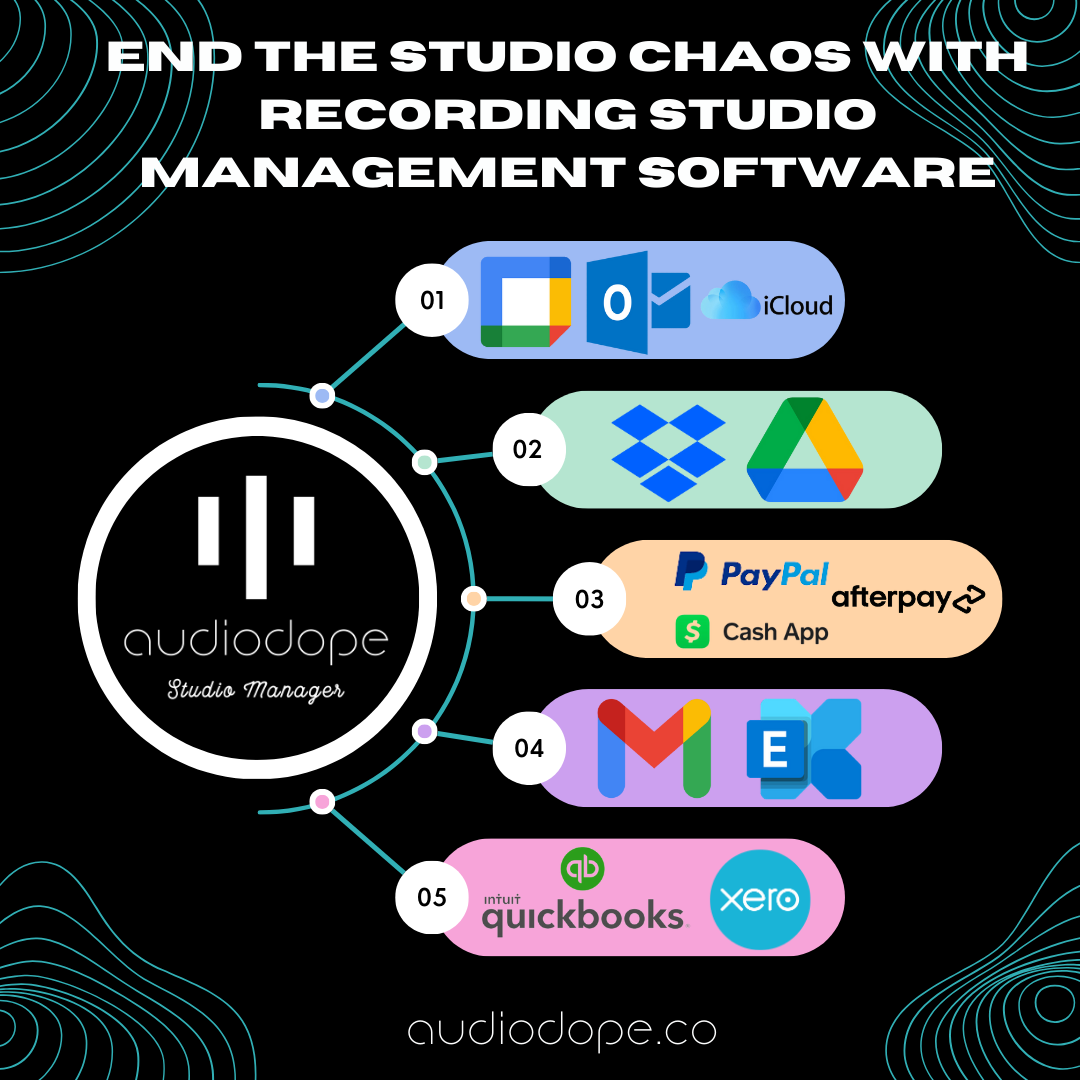File Storage for your Studio: Comparing Dropbox and Google Drive

As a recording studio owner or operator, one of the most crucial aspects of your business is efficient file storage and management.
With the ever-increasing amount of audio recordings, project files, and other related documents, it is essential to have a reliable and organized system in place.
In this article, We will explore the benefits of using cloud storage for file management and compare two popular options in the market: Dropbox and Google Drive.
Benefits of using cloud storage for file management
Cloud storage has revolutionized the way we store and manage files. Gone are the days of physical hard drives and the risk of data loss due to hardware failures or accidents. With cloud storage, your files are securely stored on remote servers, accessible from anywhere with an internet connection.
This is especially beneficial for recording studios, as it allows for seamless collaboration between artists, producers, and engineers, regardless of their physical location. Additionally, cloud storage provides automatic backups, ensuring that your valuable recordings and project files are safe and protected.
Overview of Dropbox
Dropbox is one of the pioneers of cloud storage and has established itself as a popular choice for individuals and businesses alike. Its user-friendly interface and robust features make it an attractive option for recording studios.
With Dropbox, you can easily upload, organize, and share files with team members and clients. The platform also offers seamless integration with various applications, making it a versatile tool for file management.
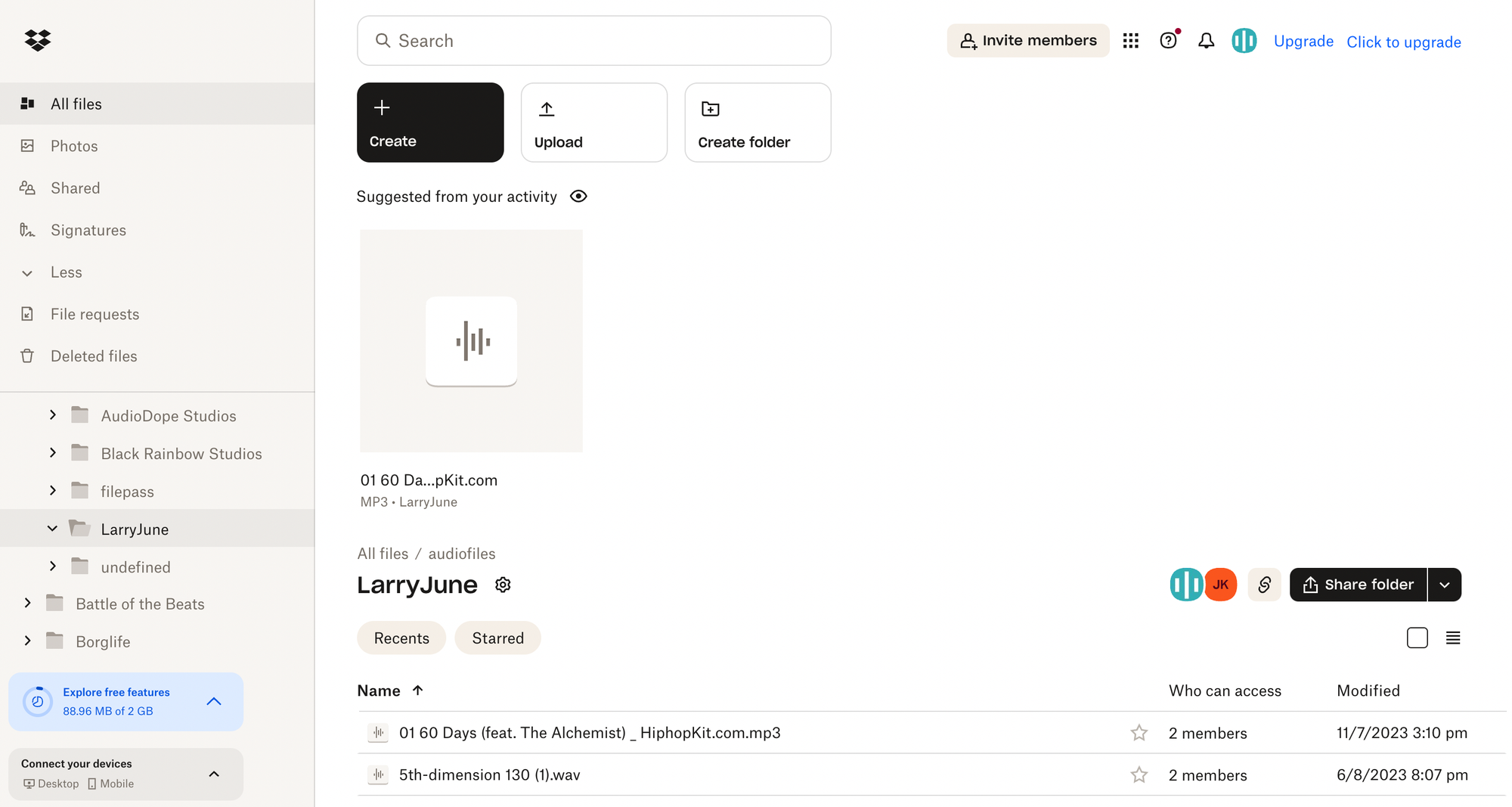
Key features and functionalities of Dropbox
One of the key features of Dropbox is its file synchronization capability. This means that any changes made to a file on one device will automatically be synced across all devices connected to the account.
This is particularly useful for recording studios, as it allows for real-time updates and collaboration between team members. Dropbox also offers a powerful search function, making it easy to locate specific files or folders within your storage.
Another notable feature of Dropbox is its file versioning capability. This means that if you accidentally make changes to a file and want to revert to a previous version, Dropbox keeps track of all file versions, allowing you to restore the desired version with ease. This feature is invaluable for recording studios, as it ensures that no work is lost or overwritten.
Pros and cons of using Dropbox for file storage management
There are several advantages to using Dropbox for file storage management in your recording studio. Firstly, it offers a generous amount of free storage space, with the option to upgrade to larger plans if needed.
The user-friendly interface and intuitive navigation make it easy for both tech-savvy and non-technical users to navigate the platform. Additionally, Dropbox's robust security measures, including encryption and two-factor authentication, provide peace of mind when storing sensitive recordings and project files.
However, there are also some limitations to consider. Dropbox's free plan has a storage limit, and upgrading to larger plans can be costly for studios with extensive file storage needs. Furthermore, while Dropbox offers seamless integration with various applications, it may not have the same level of integration options as other cloud storage providers.
Finally, some users have reported slower upload and download speeds compared to other platforms, which can be a drawback for recording studios working with large file sizes.
Overview of Google Drive
Google Drive is another popular cloud storage option that offers a range of features and functionalities for recording studios. It is seamlessly integrated with other Google applications, making it an attractive choice for those already using Google's suite of productivity tools. With Google Drive, you can easily create, edit, and share files, fostering collaboration and productivity within your studio.
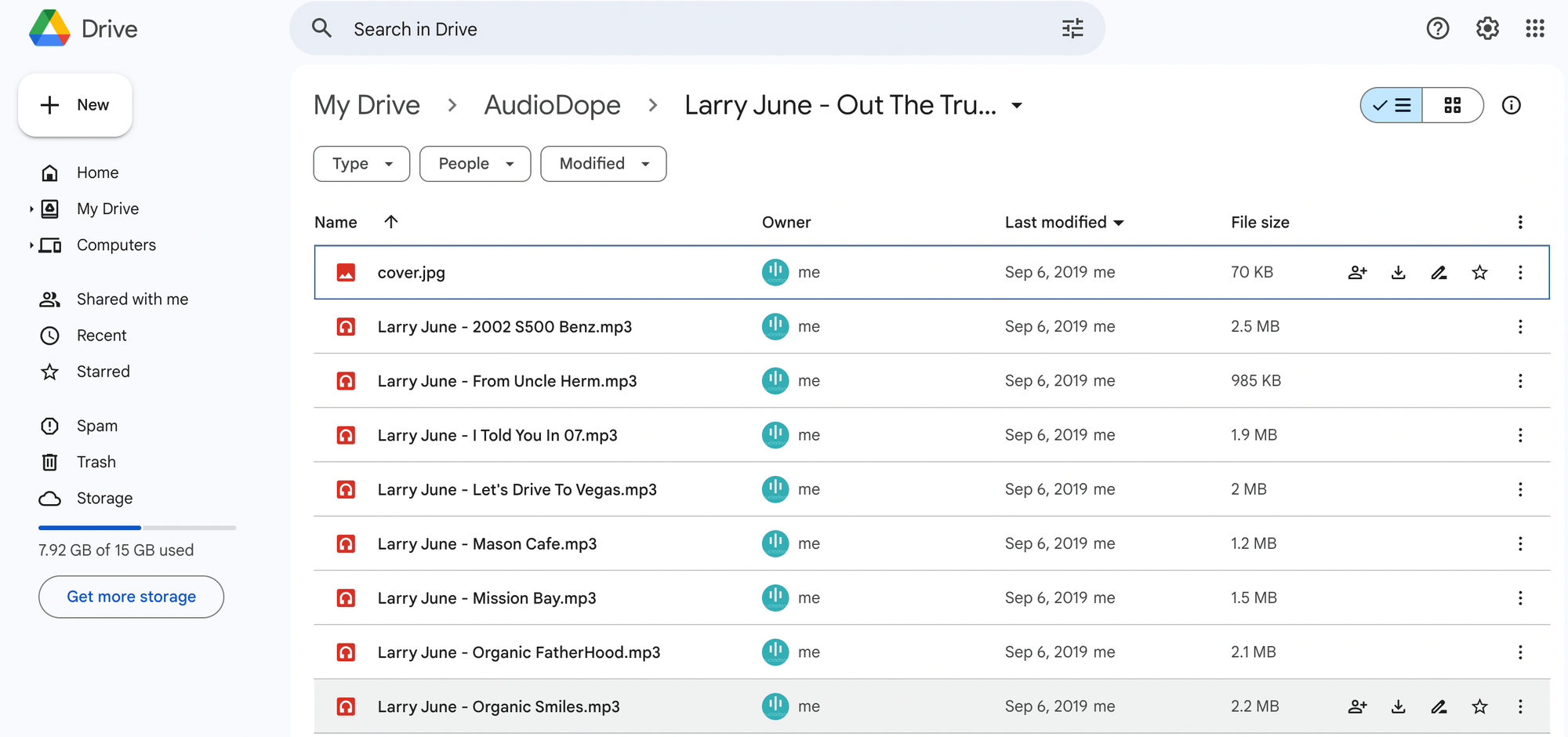
Key features and functionalities of Google Drive
One of the key features of Google Drive is its collaborative editing capability. Multiple users can simultaneously work on the same file, making it ideal for recording studios where real-time collaboration is crucial. Google Drive also offers powerful search functionality, allowing you to quickly locate files based on keywords or file types.
Additionally, Google Drive provides a wide range of file formats that can be previewed directly within the platform, eliminating the need for additional software.
Another notable feature of Google Drive is its integration with other Google applications, such as Google Docs, Sheets, and Slides. This integration enables seamless editing and sharing of files within the Google ecosystem. Furthermore, Google Drive offers robust sharing options, allowing you to control the level of access granted to collaborators, ensuring the security of your files.
Pros and cons of using Google Drive for file storage management
Google Drive offers several advantages for recording studios. Firstly, it provides a generous amount of free storage space, which can be upgraded to larger plans at affordable prices. The seamless integration with other Google applications enhances productivity and collaboration within your studio.
Additionally, Google Drive's powerful search functionality and wide range of supported file formats make it easy to find and work with your files.
However, there are also some limitations to consider. Google Drive's file synchronization can sometimes be slower compared to other cloud storage providers, which can be a drawback when working with large audio files.
Furthermore, while Google Drive provides a good level of security, some users may have concerns about data privacy and Google's data collection practices. Finally, Google Drive may not offer the same level of granular control and advanced file management features as other platforms.
Comparing Dropbox and Google Drive for seamless organization
When choosing between Dropbox and Google Drive for file storage management in your recording studio, several factors need to be considered. Firstly, consider the storage space offered by each platform and whether it aligns with your studio's file storage needs.
Additionally, evaluate the user interface and ease of navigation, as this will impact the efficiency and user experience within your studio.
Integration with other applications is also an important consideration, especially if your studio relies on specific software and tools for audio production.
Another crucial factor to consider is the level of security and privacy offered by each platform. Ensure that your chosen cloud storage provider meets industry standards for data encryption and protection.
Additionally, consider the backup and restore options provided by each platform, as this will determine the level of data redundancy and protection for your recordings and project files.
Integration with AudioDope Studio Manager
For recording studios looking for a comprehensive solution that integrates file storage management with other studio management functions, AudioDope Studio Manager is an excellent choice.
This all-in-one platform offers seamless integration with cloud storage providers such as Dropbox and Google Drive, along with native file integration allowing for centralized file management within the Studio Manager interface.
You can also transfer files up to 25GB through AudioDope File Transfer.
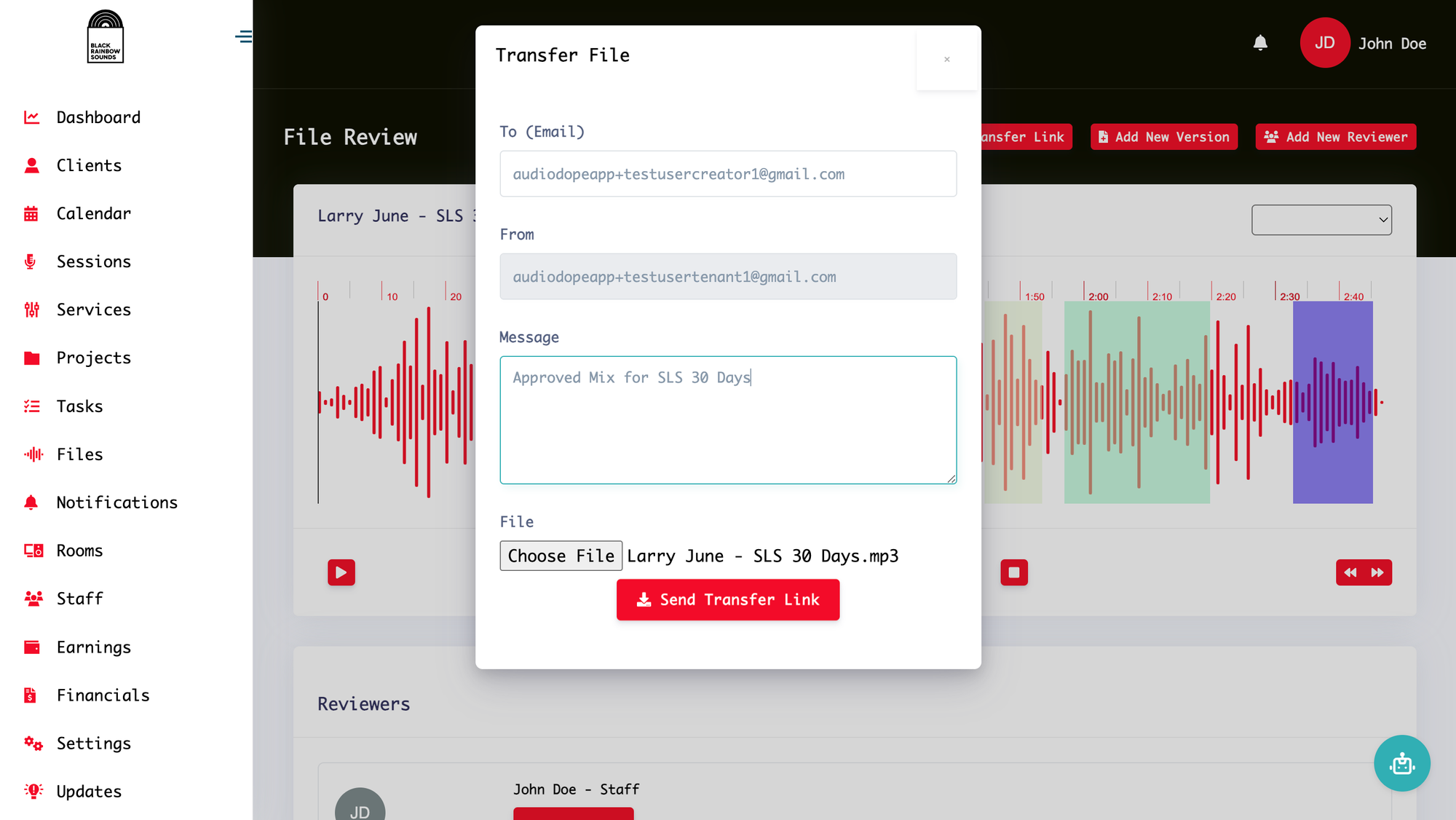
With AudioDope Studio Manager, you can easily track and manage your studio's projects, clients, invoices, and your files, all in one place.
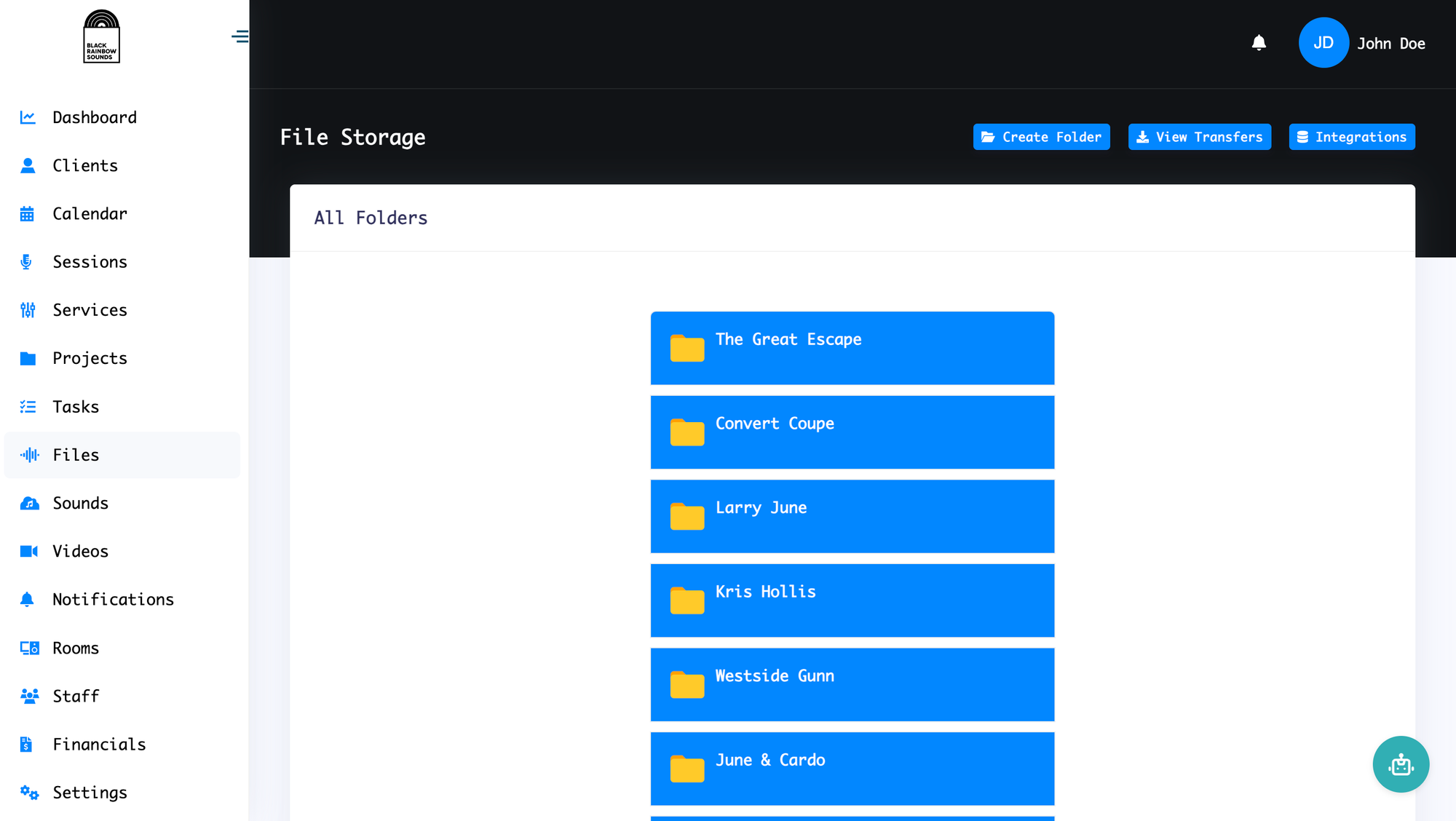
Conclusion: Making the right choice for your file storage management needs
Choosing the right file storage platform for your recording studio is a crucial decision that can significantly impact your studio's efficiency and productivity. Both Dropbox and Google Drive offer robust features and functionalities for seamless organization and collaboration.
Consider your studio's specific needs, such as storage space requirements, integration with other applications, and security measures. By carefully evaluating these factors and following best practices for file storage management, you can make an informed decision and optimize your studio's file management system.
To learn more about how AudioDope Studio Manager can streamline your recording studio operations and integrate seamlessly with Dropbox and Google Drive, visit our website or schedule a demo today.
